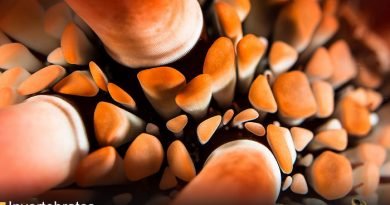Long-Spined Urchin
Table of Contents
Exploring the Long-Spined Urchin: A Fascinating Ocean Creature
In the depths of our world’s oceans resides a creature both intriguing and vital to marine ecosystems—the Long-Spined Urchin. This unique sea creature, scientifically known as Diadema antillarum, plays a crucial role in maintaining the health of coral reefs. Let’s delve into the world of these fascinating echinoderms, exploring their biology, ecological impact, and significance to oceanic biodiversity.
Understanding the Long-Spined Urchin
Anatomy and Behavior of Diadema antillarum
The Long-Spined Urchin is characterized by its elongated spines, which can grow up to several inches in length. These spines serve multiple purposes, including protection against predators and locomotion across rocky or coral surfaces. Diadema antillarum is primarily herbivorous, feeding on algae that can otherwise overgrow and harm coral reefs. This feeding behavior makes them crucial “gardeners” of the reef, contributing to the balance of marine life.
Habitat and Distribution
Long-Spined Urchins are commonly found in shallow tropical waters, particularly in the Caribbean Sea and parts of the Western Atlantic. They prefer rocky substrates or coral reefs where algae growth is abundant. However, the distribution of these echinoderms has faced challenges due to environmental changes and human impacts, which have significantly affected their populations.
The Importance of Diadema antillarum to Coral Reefs
Ecosystem Role in Reef Health
Coral reefs rely on Long-Spined Urchins to control algae growth, preventing it from outcompeting coral for space and resources. By grazing on algae, these urchins help maintain the delicate balance of reef ecosystems, promoting coral growth and overall biodiversity. Their decline can lead to detrimental effects on reef health, including coral bleaching and degradation.
Impact of Population Decline
In recent decades, the population of Long-Spined Urchins has declined significantly due to various factors, including disease outbreaks and overfishing of their predators. This decline has had cascading effects on coral reefs, with unchecked algae growth stifling coral recovery and resilience. Efforts to restore Diadema antillarum populations are crucial for the long-term health of coral reefs.
Conservation Efforts and Future Outlook
Efforts are underway to restore Long-Spined Urchin populations through targeted conservation strategies, including breeding programs and habitat restoration initiatives. However, the complex interactions within marine ecosystems underscore the importance of comprehensive conservation measures that address multiple stressors simultaneously.
FAQs About the Long-Spined Urchin
- What is the role of Long-Spined Urchins in coral reef ecosystems? Long-Spined Urchins play a critical role in controlling algae growth on coral reefs, which is essential for maintaining the health and diversity of these ecosystems. Their grazing prevents algae from overgrowing and suffocating corals.
- How do environmental changes impact Long-Spined Urchin populations? Environmental changes, such as rising sea temperatures and pollution, can negatively affect Long-Spined Urchin populations by disrupting their habitats and food sources. This can lead to population declines and altered reef dynamics.
- Are Long-Spined Urchins affected by human activities? Yes, human activities such as overfishing of their predators and habitat destruction contribute to the decline of Long-Spined Urchin populations. Sustainable management practices are essential to mitigate these impacts.
- Can Long-Spined Urchins recover from population declines? With concerted conservation efforts, including habitat restoration and population management, Long-Spined Urchin populations can recover over time. However, long-term monitoring and adaptive management strategies are necessary for success.
- How can individuals contribute to Long-Spined Urchin conservation? Supporting marine conservation initiatives, practicing responsible fishing and diving, and raising awareness about the importance of Long-Spined Urchins in marine ecosystems are impactful ways for individuals to contribute to their conservation.
By understanding and valuing the role of Long-Spined Urchins in our oceans, we can work towards preserving these remarkable creatures and the ecosystems they support. Through collective action and awareness, we can ensure a sustainable future for our planet’s coral reefs and marine biodiversity.



